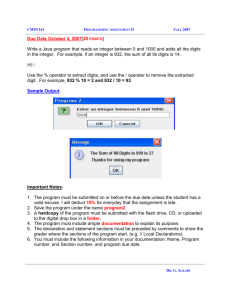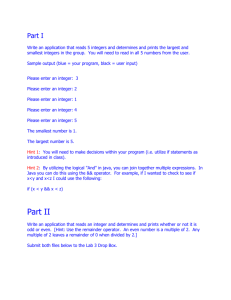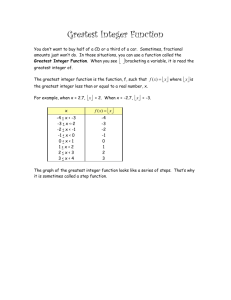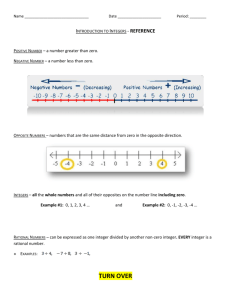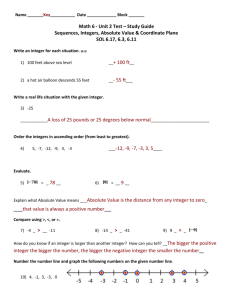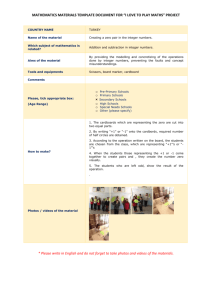Java Arithmetic
advertisement
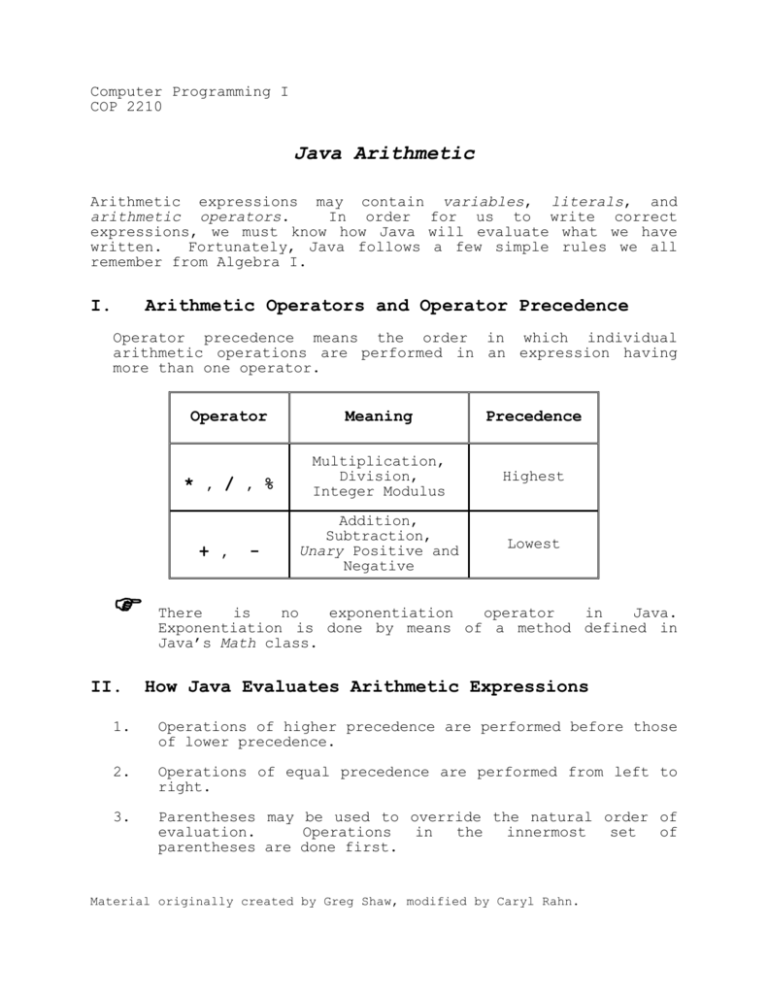
Computer Programming I COP 2210 Java Arithmetic Arithmetic expressions may contain variables, literals, and arithmetic operators. In order for us to write correct expressions, we must know how Java will evaluate what we have written. Fortunately, Java follows a few simple rules we all remember from Algebra I. I. Arithmetic Operators and Operator Precedence Operator precedence means the order in which individual arithmetic operations are performed in an expression having more than one operator. Operator Meaning Precedence * , / , % Multiplication, Division, Integer Modulus Highest Addition, Subtraction, Unary Positive and Negative Lowest + , II. - There is no exponentiation operator in Java. Exponentiation is done by means of a method defined in Java’s Math class. How Java Evaluates Arithmetic Expressions 1. Operations of higher precedence are performed before those of lower precedence. 2. Operations of equal precedence are performed from left to right. 3. Parentheses may be used to override the natural order of evaluation. Operations in the innermost set of parentheses are done first. Material originally created by Greg Shaw, modified by Caryl Rahn. III. A. Even if not necessary, parentheses are often used for clarity. This is generally a good idea --- especially in complex expressions --- because then you needn’t be concerned with the natural order of evaluation. Integer Division and Modulus (“Mod”) Back to the Future To understand the integer division and mod operations, we must travel back in time to the second grade, when we first learned about “long” division, but were blissfully unaware of decimal points and “real” numbers. For example, to divide 100 by 16 we would do something like this: 6 r 4 16 100 96 4 Recall that the answer has two parts --- an integer quotient of 6 and an integer remainder of 4. B. Integer Division When one integer is divided by another integer, the result is the integer portion of the quotient (only!). Examples: C. 10 / 4 = 2 9 / 5 = 1 99 / 100 = 0 Unknowingly dividing one integer by another and expecting a “real” result is an extremely common source of logic errors!!! Integer Mod The mod operator --- which may be used only with integer operands --- returns the remainder of an integer division. Examples: 10 % 4 = 2 9 % 5 = 4 99 % 100 = 99 For both integer division and modulus, the right-hand operand must be non-zero. Otherwise, the Arithmetic Exception “/ by zero” will be thrown. IV. Self-Check Questions Material originally created by Greg Shaw, modified by Caryl Rahn. Each expression below has multiple operators. Above each operator, write a number indicating the order in which the operations will be performed. Then, evaluate each expression. 5 * 20 + 8 % 50 – 3 * 6 / 4 + 9 8 % (2 * (5 – 3 * (4 + 6 * (5 / 2)) / 10)) Material originally created by Greg Shaw, modified by Caryl Rahn.
